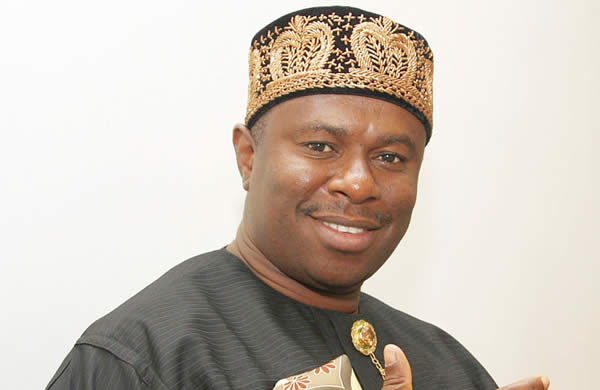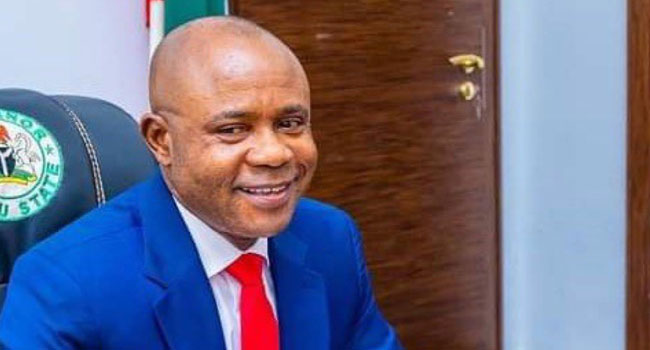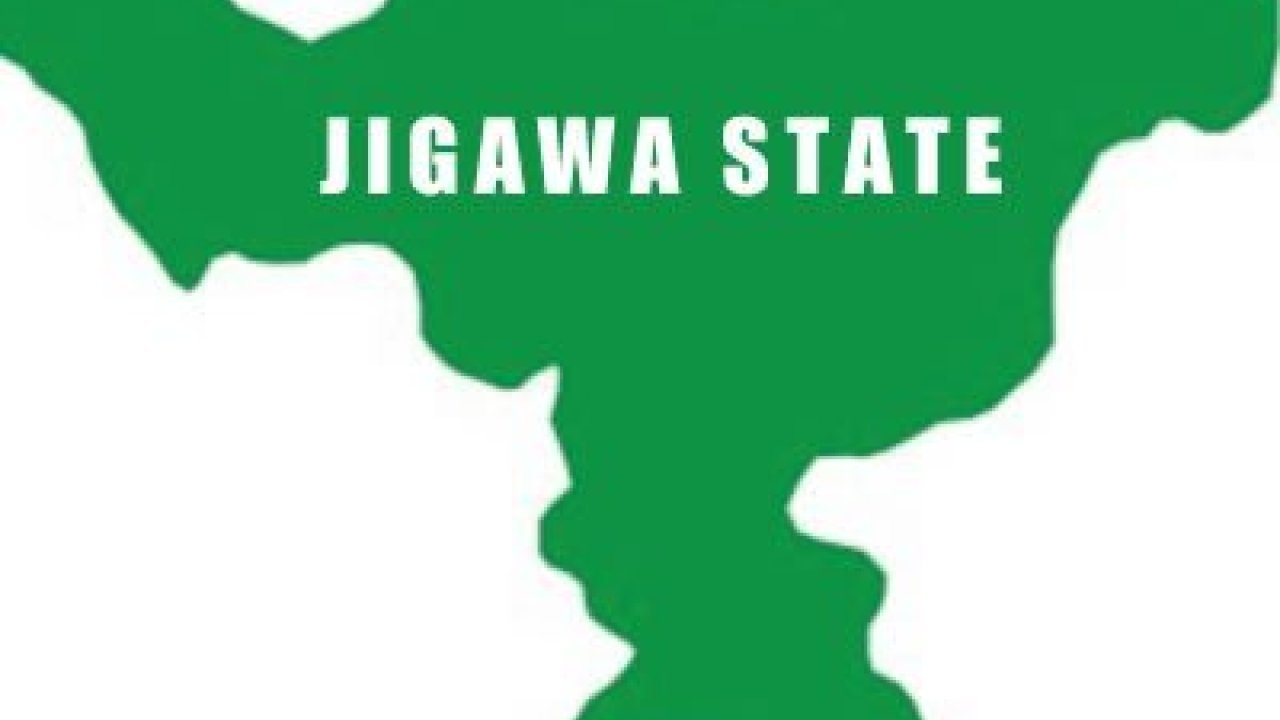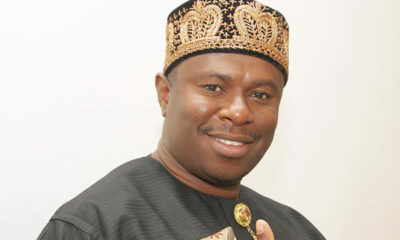News
The Parliamentary system debate

By Dakuku Peterside
The debate over which system of government is most appropriate for a multi-ethnic and geographically diverse Nigeria has suddenly resurfaced. This time, it is pushing the fundamental issues of good governance, bread and butter, security, and inclusiveness that Nigeria is grappling with to the back burner. At the centre of the debate is the agitation for a return to the parliamentary system of government as the structural panacea to Nigeria’s myriads of problems, although Nigeria has long consigned this system of government to history. Agitating the minds of critical observers of Nigerian politics is whether this renewed debate is political or systemic or is just a symptom of frustration with poor governance outcomes. Will a change from a presidential system of government to a parliamentary system put Nigeria on a trajectory of growth and development? Is there solid evidence that our many woes come from the practice of the presidential system of government, that a change to parliamentary will help us overcome?
The first to fire the salvo was a group of 60 members of the National Assembly that proposed a bill to take the country back to the parliamentary system. Support came from diverse and far-flung quarters in rapid succession, including Afenifere, the pan-Yoruba political platform. We are not alone here. In late March this year, our neighbour, Togo, adopted a new constitution introduced by members of the ruling party, which transitions the West African nation from a presidential to a parliamentary system. Senegal also witnessed a significant generational shift in electing a new president. Developments in Togo and Senegal would increase the intensity of debate and agitations in Nigeria.
In retrospect, we have tried both the parliamentary and presidential systems at different times. Between 1960 and 1966, referred to as the first republic, Nigeria, like most African countries that just got independence from their British colonial masters, adopted a parliamentary system of government. It had its challenges and strengths. At the breakdown of the first republic, the popular verdict was that the system was not the most appropriate for us or that the Nigerian political elite could not operate it. The military government of 1976-1978 led by General Olusegun Obasanjo, and the growing political elites considered the pros and cons of the parliamentary system, which was still fresh in Nigeria’s minds, and decided that the cons outweighed the pros. Just before the 1979 military-civilian transition, they chose the presidential system for us. The justifications for this choice were to improve issues of management of geographical diversity, representation of various groups, repudiating strong ethnic sentiments against national sentiment, and eliminating corruption.
However, like the parliamentary system, the presidential system has merits and demerits.
The most significant challenges of the presidential system as practised in Nigeria are fourfold. The first is the tendency of the executive arm to pocket the legislative arm, which has made nonsense of the principle of separation of power, and checks and balances. The US-type presidential system is predicated upon a system of checks and balances. This vital principle does not allow for the rascality of any arm of government that may jeopardise the system. Since the return of democracy in 1999, and it is particularly evident at the sub-national level, this principle has been rendered impotent. Second, the enormous powers exercised by the president and governors tend to be abused and often breed dictatorship. Third, the winner-takes-all-mentality, which leads to the abuse of power of patronage that fuels corruption and exclusion of the majority from mainstream government activities, saps the government’s access to quality leadership potentials within the country. Fourth, the high cost of governance and low accountability have created a government system that is corrupt and overbearing. Our common patrimony is bastardised by a few privileged to be part of the government.
The attempt to revisit the parliamentary system is not unconnected to our current economic challenges, ethnic tensions or separatist agitations, and corruption that has defied solution and gross incompetence of a good number of our political leaders. As a participant-observer, I believe Nigeria’s current governance crisis is less a problem of the system of government and more of political culture, incompetence of operatives and political actors,lack of leadership capacity and moral depravity. Each system has its pros and cons. Any system can be designed,considering local peculiarities and made to work if run by competent persons who subscribe to a common vision and shared core values and are ready to respect the rule of law. Nigeria’s problems of disunity, lack of patriotism, stunted growth, corruption, and leadership incompetence are neither a product of the parliamentary nor presidential system. It is simply a lack of commitment by the elite to democracy, democratic tenets and the common good. Democracy is not just about representative election, which we practice, though with a massive caveat regarding its credibility. It is more about practising its principles , such as the rule of law, upholding fundamental freedoms of the people, accountability of government to the people, security of life and property, and responsible governance that gives dividends of democracy to the people.
Whether Nigeria should transition to a parliamentary system of government is a complex question that involves weighing various factors, including the country’s political culture, multi ethnic setting , historical context, governance challenges, and aspirations for democratic development. Proponents of a parliamentary system argue that it can promote political stability by ensuring a closer alignment between the executive and legislative branches of government. In a parliamentary system, the government is typically formed by the majority party or coalition in the legislature, leading to smoother governance than the potential for gridlock in a presidential system. Also, they argue that parliamentary systems often feature a more transparent chain of accountability, as the executive is directly accountable to the legislature. This can enhance transparency and responsiveness to the electorate’s needs. They further argue that parliamentary systems are more flexible in responding to crises or changing circumstances. If the government loses the legislature’s confidence, it can be replaced swiftly through a vote of no confidence or early elections, allowing quicker course corrections. Lastly, a parliamentary system could better accommodate the representation of various groups by fostering coalition-building and power-sharing among different factions.
Achieving this transition to a parliamentary system requires significant constitutional reforms, which can be lengthy and contentious. It would also necessitate changes to the electoral system and the functioning of government institutions. Nigeria has a long history of presidential governance since gaining independence in 1960. Transitioning to a parliamentary system would represent a departure from this tradition and may encounter resistance from those vested in the current system. Implementing a parliamentary system would require building institutional capacity, training legislators and administrators, and fostering a political culture conducive to coalition-building and consensus-driven decision-making.
A marked difference between the two systems is the cost of governance versus development, which weighs heavily in favour of the parliamentary system. This may be an attraction for proponents of a parliamentary system. However, it would help if you juxtaposed this with which system is more appropriate for governing a diverse multi-ethnic federation and what system has worked best for the most successful federations in the world. Opponents of a transition to a Westminster-style parliamentary system have also argued that switching could aggravate the challenges of governability because of our political parties’ high level of indiscipline, poor political culture, ethnic cleavages, and the multi-ethnic nature of our society.
Ultimately, the decision to transition to a parliamentary system should be guided by careful consideration of the preceding factors and a broad-based consultation and consensus-building among stakeholders. It is essential to assess whether such a change would address Nigeria’s governance’s underlying challenges and contribute to its long-term political stability and development. The inference to draw is that the current agitation is a demand for a new political culture, protest against the high cost of governance, incompetence of the political leadership, bloated bureaucracy, and poor governance outcomes. There is no definite study to show a relationship between a system of government, thriving democracy, and a high standard of living. Nigeria’s problem is not necessarily the system of government we practice but the leadership deficit among the political operatives and actors. No matter which system is in place, we will have the same results as we are seeing now if the same morally jaundiced and intellectually bankrupt political actors hijack power and rule in their narrow, selfish interests. That is our bane. That is what we must change to survive.
News
NASS assures Information Ministry of improved funding in 2025


The Chairman, House Committee on Information, Ethics and Values, Rep. Olusola Fatoba, has assured of improved budgetary allocation for the Ministry of Information and National Orientation in 2025.
Fatoba disclosed this when he paid an oversight visit to the ministry in Abuja.
“We are on the same page with the Minister on the issue of low budgetary allocation for the ministry in the 2024 budget. The Ministry cannot perform its function effectively with poor funding.
“We would do everything within our powers, including lobbying, to ensure that the ministry is better funded to perform its function of educating Nigerians on government programmes and policies.
“We would also work with stakeholders to ensure improved budgetary allocation for the Ministry in the 2025 budget to enable its carry out its functions effectively, and deliver on its mandate,” Fatoba said.
Earlier, the Minister, Alhaji Mohammed Idris, had said that in a meeting with the committee in 2023, discussions were targeted at improved funding for the information and orientation sectors of the country.
“I know the efforts that the chairman and members of the committee, together with their counterparts in the Senate, put in to ensure that my ministry is properly funded to execute its mandate.
“Theirs, and our combined efforts have not given us the kind of budget that we should have for this ministry in view of the transformative journey that the ministry has embarked upon.
“We believe that the ministry has a critical role to play in ensuring that everything that the government wants to do is properly communicated, and Nigerians get to know, understand and support government policies and programmes.
“However, criticism is a very healthy thing and we all know that president Bola Tinubu is a democrat, who is always open to criticism that is healthy, progressive and aimed at moving the country forward.
“At the ministry, are not happy with the kind of budget that we have, because the allocation being made for the ministry is, to say the least, very meagre,” Idris said.
The minister lauded the committee for its support, adding that the executive was looking at the challenges being faced by the ministry to ensure that it got the appropriate funding to transform the sector.
Idris said that sometimes the ministry had to go the extra mile to use its contacts and goodwill within the industry to get things done.
“I think that Nigerians, especially the media, are very ready to help but of course, we also know that they are in business. They need to power their generators and pay their staff.
“Therefore, we also need to pay them. We should not take the relationship for granted,” Idris said.
News
Workers Day: Be patient with us —Gov. Mbah begs workers


Gov. Peter Mbah of Enugu State has appealed to workers in the state for patience, saying he remained committed in doing everything needed to make their condition better.
Mbah made the appeal at the 2024 Workers Day Celebration held at Okpara Square in Enugu on Wednesday with the theme: “People First.”
He said his administration would stop at nothing until it achieved workers’ welfare and would strive to fulfil his campaign promises.
The governor, represented by his Deputy, MrIfeanyiOssai, while acknowledging that workers needed improved wages to meet economic realities in the country, stressed that the income they received currently hardly met the basic needs of life.
“We all go to the same market, buy from the same petrol station and shops and children go to the same school and hospital.
“Be patient with us because we are putting things in place with the means available to the government to make life better for all of us.
“Wage award will not solve all the problems as it is just a palliative to cushion the effects of the hard economy and that is why we are building a system that will solve the problems in the long run,” he said.
He added that: ”You can witness the revolution in road infrastructure, aggressive work at International Conference Centre, the awarding of a contract to rebuild Hotel Presidential and revitalisedNigergas Company.”
On the state’s investment in SMART Schools, the governor said the government desired to do more but lacked the resources to meet them
“That is why we try to create wealth, and have been aggressive on our foreign and local investments and creation of jobs.
“And our wish and efforts is that in years to come, the workers will live beyond what they are currently facing.”
The governor further explained that his administration was building the SMART schools to train Enugu children for the future as well as improving public schools and healthcare systems.
He stressed that with an effective transport system, pressures on families would reduce as their would be no additional cost in maintaining their cars.
While commending workers for the support they had received from them since they assumed office, he promised to look into pension issues to ensure that every retiree got paid.
“I want to thank you for your hard work and commitment in driving government policies to ensure that they benefit the people,” Mbah said.
Earlier, the State Chairperson, Nigeria Labour Congress (NLC), Comrade Fabian Nwigbo, said the removal of fuel subsidy without anything in place to cushion the effects, created a lot of hardship for workers who received N30, 000 as minimum wage.
Commending Mbah for all his government was doing in the state, the chairperson urged him to ensure that after the verification of pensioners, payment of arrears of gratuity should commence to alleviate their sufferings.
He equally appealed to him to direct payment of arrears of pension to State Parastatals, Primary Schools and Local Government retirees.
On his part, the state Chairman, Trade Union Congress (TUC), Comrade BennethAsogwa, urged the governor to harmonise gratuity for state and local government retirees.
He also called for the review of the termination of the appointment of some staff of the Enugu State College of Education (Technical).
While lauding the governor for various developmental strides in the state, Asogwa equally appealed to him to regularise appointment of some civil servants recruited in 2012 by the Coal City Transport Services.
The highlight of the event included a march past by different labour unions in the state.
News
Jigawa announces new programme for civil servants


Jigawa Government has announced a new agricultural programme called “J-Agric” to ensure a brighter future for civil servants.
Gov. Umar Namadi announced the programme on Wednesday in Dutse at the 2024 Workers Day celebration.
He explained that under the programme, the government would provide opportunities for workers to invest in agriculture.
He said, “I’m glad to unveil a new programme initiated by this administration to secure the present and future lives of our workers.
“A sustainable agricultural programme is underway to provide free farmlands and financial loans to Jigawa civil servants for the purpose of agriculture.
“The state government, through the J-Agricprogramme, will provide greater opportunities for workers to invest in agriculture.”
Namadi added that under the programme, the government shall facilitate workers’ easy access to farmlands and credit facilities through cooperatives and other financial institutions.
This, he said, is to assure workers and their families a brighter future even after retirement.
“This is part of the administration’s plans through deliberate policy to improve the lives of people and food security,” Namadi said.
The Chairman of the Nigeria Labour Congress, MrSunusiAlhassan, commended the governor for the gesture.
Alhassan, however, urged the state government to expedite the launch of the programme as the rainy season is fast approaching “so as to ensure maximum benefit for all.”
-
capital market2 years ago
Rt.briscoe, FBNH, Others halts negative performance of stock market
-
Finance3 months ago
Court orders Sen. Victor Umeh to repay N136m bank debt to AMCON
-



 Abuja Update2 months ago
Abuja Update2 months agoUNDP, FG partnership needed to achieve inclusion, equity- Minister
-
Abuja Update1 month ago
Banks drive stock market performance with N147bn gain
-



 Business1 week ago
Business1 week agoTingo Group unveils Tingo Electric, Tingo Cola drink at Lagos launch
-



 Health2 weeks ago
Health2 weeks agoCapacity training will reduce migration of health workers- NPHCDA
-
News4 months ago
Oil thieves sponsoring malicious media campaign against Navy – Spokesman
-



 Infotech1 month ago
Infotech1 month agoWorld Backup Day: NITDA urges Nigerians to ensure backup of data








